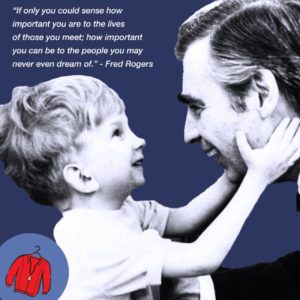Marriage is a time when vows are taken. Vows become a covenant. Covenant is a word you may not hear a lot of unless you read a spiritual book like the Bible. It is sacred word. Nowadays, there are people who don’t view marriage as sacred. When people in a relationship commit to each other and exchange vows, ideally, that event should be set apart. What happens when that commitment is not looked after? If a marriage is left unattended or neglected by either spouse, then ugly will occur. What happens to the marriage if the husband or wife decides to seek comfort in the arms of another?
Infidelity, like adultery, is an ugly word. Yet when spouses engage in an affair, ugly is the last thing they think about. It’s a time of excitement and adventure for them. The nagging guilt of breaking vows is often pushed back. Like an addict, the adulterer is very good at rationalizing their behavior. It’s only when the person is caught or decides to finally come clean that the repercussions and consequences begin to unfold. For the person being betrayed? Other emotions are displayed. Anger, hurt, betrayal, and sadness come screaming to the forefront. Overnight, trust is shattered. They ask questions and no answer seems good enough.
What happens next? For some, infidelity is a deal breaker and to them there is no option but divorce. Lives are irrevocably changed. Families are broken up and kids are left to wonder, “what happens now?” There are a plethora of reasons why the Bible speaks so forcibly on the subject of adultery. “Do not commit adultery” is one of the 10 Commandments. God has warned us of the devastation that infidelity can bring. It doesn’t get much plainer than those 4 words. It’s Gods way of putting up flashing neon lights, road blocks, and danger signs just to get our attention. Yet the sexual revolution has made it easier to go around these warnings signs and plow right into the ugly and pain.

There are some couples that fight for their marriage. It is a difficult and emotionally draining time for both spouses. Offending spouses should come to a point of brokenness, not because they got caught, but because it is in that space of brokenness that remorsefulness is authentic that spouses can own up to their trespass. If the repentance is genuine, is there a chance for forgiveness and reconciliation? For those that seek reconciliation, counseling can be a place where healing begins to take place. My goal is that when clients meet with me or any therapist at Armstrong Family Counseling that they enter into a safe space that’s nonjudgmental and a place that fosters hope.
Both spouses have to face certain truths about the state of their relationship. They will have to individually and together decide if their marriage is worth fighting for. They will have to be willing to listen to each other. They should come to a point where they are willing to walk through the many different emotions and actions that a counseling session might bring up.
Perhaps for the first time they will learn to be on the same page. But as I am sure you know, nothing worth while ever comes easy. Rebuilding a marriage will take time.? There are no easy fixes. If you are spiritual, then God or your higher power can play a giant role in bringing about new life to the marriage. With honest hard work from both spouses, and lots of prayer, there is hope for a new beginning. One woman wrote on the website The Unveiled Wife about her experience and what occurred when she trusted God to rebuild her marriage into something better.
If you need help moving forward, I am a relationship expert. I can help you. Don’t wait, contact me today!




 Philippians 4:6-7: Do not be anxious about anything, but in every situation, by prayer and petition, with thanksgiving, present your requests to God. And the peace of God, which transcends all understanding, will guard your hearts and your minds in Christ Jesus.
Philippians 4:6-7: Do not be anxious about anything, but in every situation, by prayer and petition, with thanksgiving, present your requests to God. And the peace of God, which transcends all understanding, will guard your hearts and your minds in Christ Jesus.

 People put on a front and cover up those less than pleasing things when interacting with others. I see these personas when I am at church or out eating and in front of others. We put on our best clothes and our biggest smiles acting like we have it all together. Sometimes we overcompensate by being overly joyful or talking too much. Most people can see right through it, yet we continue the charade of keeping the mask on that tells the world that everything is ok in our life.
People put on a front and cover up those less than pleasing things when interacting with others. I see these personas when I am at church or out eating and in front of others. We put on our best clothes and our biggest smiles acting like we have it all together. Sometimes we overcompensate by being overly joyful or talking too much. Most people can see right through it, yet we continue the charade of keeping the mask on that tells the world that everything is ok in our life.












